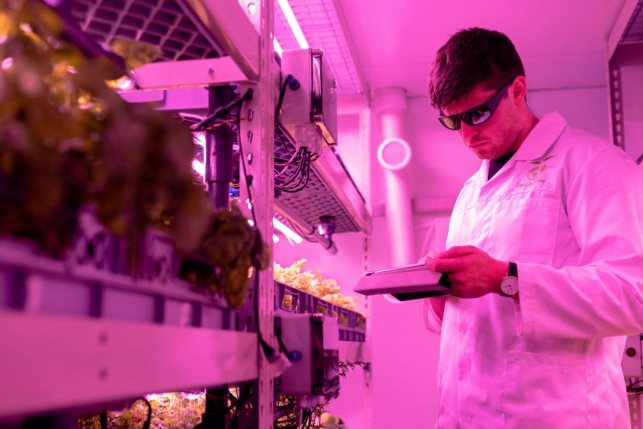Nihal Khalil on navigating the complex world of women’s empowerment in Pharma
With over 20 years of experience, Nihal champions women’s health and empowerment while leading regional HR efforts, embodying self-expression and authenticity to encourage others to embrace themselves and their own special abilities and personalities

In the dynamic field of pharmaceuticals, Nihal Khalil, currently serving as the HR Lead at Organon for the Middle East, North Africa, and Turkey, stands as a guiding force for women's leadership. With over 20 years of experience, Nihal champions women’s health and empowerment while leading regional HR efforts, embodying self-expression and authenticity to encourage others to embrace themselves and their own special abilities and personalities.
If you had a giant billboard anywhere in the world, in which you could write anything on it, what would it say and why?
I would use the phrase “In a world where you can be anything, be yourself,” which is close to my heart because it truly emphasizes authenticity, self-expression, and being real. It encourages women to embrace their unique identities and reminds them that they have the freedom to be true to themselves in a world that often expects conformity.
What surprised you most about your career in the Pharma industry?
 Nihal Khalil - HR Lead at Organon for the Middle East, North Africa, and Turkey
Nihal Khalil - HR Lead at Organon for the Middle East, North Africa, and Turkey
What surprised me the most was the global impact of my role, not just on a professional level but also how it extends to patients.
As we all know, the pharmaceutical industry plays a vital role in improving healthcare and saving lives on a global scale. However, I was initially surprised by the far-reaching impact of our work and HR’s contribution in the process, helping support the development of medications that can have a significant influence on patients’ outcomes and well-being worldwide.
This mission of improving patients’ lives gave me a tremendous sense of purpose on a personal level and made me fall in love with the industry from the very beginning. Especially now by leading the HR department at Organon in the MENAT region, where our purpose is to enhance women’s health.
We all work together with a clear focus to address the healthcare issues that matter most to women, today and every day, with the belief that when women are healthy, their family is healthy and in turn society is healthy.
What are some of your most memorable experiences throughout the years in the industry?
I would say they all really revolve around how dynamic the industry is, there is not one day that looks like the other nor one year that is like the other, whether it is through new medical advances, mergers and acquisitions, intricate market dynamics, and constant organizational adaptations.
It is such an adrenaline rush with there never being a dull moment, and it’s all due to the constant learning and development you get to experience through these complex dynamics and the amazing people and teams you get to work with.
If you were to give some advice to someone new to the industry, what would it be?

My advice would be to keep a few things in mind when you kick-start your career in the industry.
Begin with understanding the regulatory landscape and familiarize yourself with the regulatory process and guidelines that govern the pharmaceutical industry as it’s very regulated.
Stay ethical and patient-focused, as the industry plays a crucial role in the holistic healthcare eco-system, and center your attention on the patient’s life and well-being, keeping their best interest at the forefront of your work.
Understand and adhere to ethical guidelines, and choose a company with the right culture for you to grow and develop and finally embrace continuous learning.
The pharmaceutical industry is ever-evolving and subject to rapid changes due to scientific advancements, regulatory updates and market dynamics, so stay adaptable and accepting of change. It is this adaptability and agility that will help you thrive in such a dynamic environment.
What about your younger self? What would you share with her?
Three main points come to mind. I would say, be open to new experiences; don't be afraid to step outside of your comfort zone and try new things, embrace opportunities for personal and professional growth even if they seem challenging or unfamiliar as every experience can bring valuable lessons and help shape your character.
Prioritize well-being; take care of your physical, mental, and emotional well-being by making time for activities, practice self-care, maintain a healthy lifestyle and seek support when needed. It's important to prioritize your well-being to thrive in all aspects of life.
Lastly cultivate resilience; life is full of challenges and setbacks, learn to bounce back from failures and disappointments and take them as opportunities for growth and learning.

What is one skill that you believe women must develop to be successful?
One important skill that women need to develop to enhance their success is self-advocacy.
It’s not about adopting aggressive or confrontational behaviors, it’s about cultivating confidence, assertiveness and effective communication to create opportunities, overcome barriers, and advance in one’s career.
Women often face challenges in self-promotion and may downplay their achievements. Learning to confidently articulate their skills, experiences and contributions can help women gain visibility and recognition in their careers.
Working across multiple countries must enable you to meet a variety of people and leaders. Would you say that women lead differently or similarly to their male counterparts?
Women can lead in both similar and different ways compared to their male counterparts, and it's important to recognize that leadership styles vary among individuals regardless of gender. However, women may at times have a more collaborative approach and are often associated with transformational leadership, as well as higher emotional intelligence which involves inspiring and motivating others to achieve their full potential.
Keeping in mind that leadership styles can vary significantly based on the individual personality, experiences and cultural factors, men can also exhibit the same leadership styles associated with women, and women can exhibit leadership styles typically associated with men. What matters most is fostering diverse leadership styles and creating inclusive environments where individuals, regardless of their gender, can lead authentically and effectively. Organizations benefit from a balanced mix of leadership styles and perspectives as it leads to more innovative and successful outcomes.
Are there any women that you’ve met, or know about, that inspires you, particularly in the pharmaceutical industry?

Definitely, I have met many that have inspired me but there is really one that stood out for me and its because of her inspiring leadership style and agility.
She radiated authenticity wherever she went, and had such a calm and soothing demeanor that instantly made you feel like giving your full attention because you knew right away that you can from that specific person and can add to your own personal development and growth.
Moreover, she was very bold and curious which allowed her to venture in various areas out of her actual area of expertise and succeed through numerous executive leadership positions. She is truly an inspiration and shows that anything is possible if you put your mind to it, and she is just one of those unique leaders that really differs from others.
Are there any specific challenges that pharmaceutical organizations face when it comes to gender diversity and inclusivity? How do you overcome these challenges?
The pharmaceutical industry, like many other industries, faces specific challenges related to gender diversity and inclusivity. Some of these challenges include the underrepresentation of women in leadership roles, gender pay gaps, lack of diversity in clinical trials and work-life balance challenges.
To overcome some of these challenges, organizations must look into establishing gender inclusive policies and fostering an inclusive culture and leadership, which are some of the things we are already working on applying at Organon.
For example, 70% of our executive board of directors is occupied by women, and 50% of our regional leadership in MENAT are women. By implementing these strategies, significant progress can be made toward achieving greater gender diversity and inclusivity, benefiting both individuals and the industry as a whole.

What do you see as the future of women in the Pharma industry?
The future of women in the pharmaceutical industry is promising and continues to evolve, and despite the industry historically having a gender imbalance, there has been significant efforts to promote gender diversity and inclusion in recent years.
Many companies are actively working to increase the representation of women at all levels including within leadership positions. Efforts are being made to address barriers such as unconscious bias, promoting equal opportunities and creating inclusive work environments.
In the pharma industry, more and more women are being appointed to executive positions and board positions within pharmaceutical companies, and this is expected to continue as companies recognize the value of diverse perspectives.
Also like many others, pharma is also recognizing the importance of work-life balance. For us at Organon, we are implementing policies and practices that support flexible working arrangements, parental leave, and childcare support. These initiatives aim to attract and retain talented women in the industry, creating an environment where they can thrive and make significant contributions to the pharmaceutical field.





